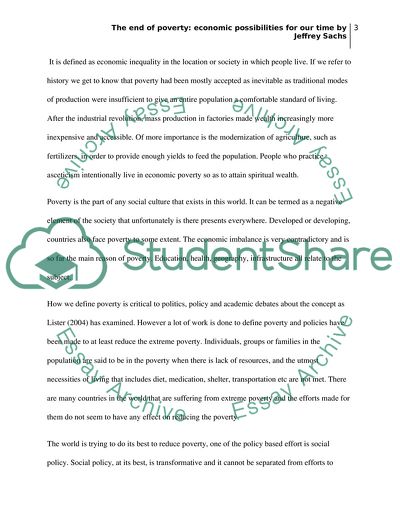Cite this document
(“The end of poverty: economic possibilities for our time by Jeffrey Essay”, n.d.)
Retrieved from https://studentshare.org/sociology/1611389-the-end-of-poverty-economic-possibilities-for-our-time-by-jeffrey-sachs
Retrieved from https://studentshare.org/sociology/1611389-the-end-of-poverty-economic-possibilities-for-our-time-by-jeffrey-sachs
(The End of Poverty: Economic Possibilities for Our Time by Jeffrey Essay)
https://studentshare.org/sociology/1611389-the-end-of-poverty-economic-possibilities-for-our-time-by-jeffrey-sachs.
https://studentshare.org/sociology/1611389-the-end-of-poverty-economic-possibilities-for-our-time-by-jeffrey-sachs.
“The End of Poverty: Economic Possibilities for Our Time by Jeffrey Essay”, n.d. https://studentshare.org/sociology/1611389-the-end-of-poverty-economic-possibilities-for-our-time-by-jeffrey-sachs.


